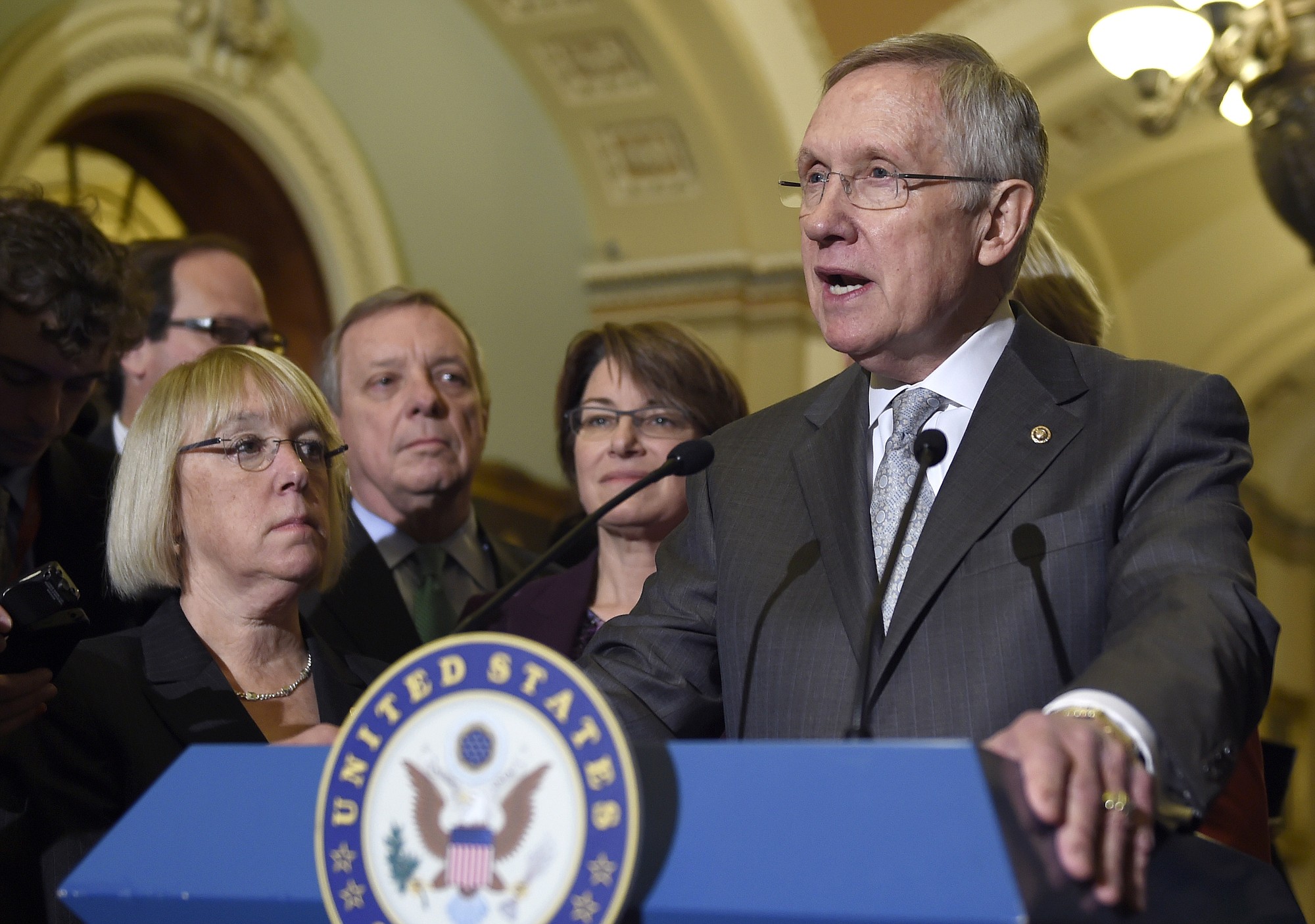WASHINGTON — On her first official day back at work since her party’s drubbing at the polls, U.S. Sen. Patty Murray said she welcomed incoming Majority Leader Mitch McConnell’s overtures about working with Democrats but is watching for signs of “Tea-Party insurrection.”
In an interview Wednesday, Murray said lawmakers during the lame-duck session face two essential tasks: approving a new spending bill to keep the federal government open after Dec. 11 and renewing a passel of tax breaks and credits that expired at the end of 2013, including sales-tax deductions for residents in Washington and other states without an income tax.
Just beyond those issues, however, looms a real test of Republican muscle over the budget, taxes and the fate of Medicare, Medicaid and other entitlement programs.
Fiscal conservatives in the House and the Senate have signaled their plans to cut spending and reduce tax rates. Murray and many Democrats oppose any further automatic austerity called sequestration that may slow the economic recovery.
The two parties will have to hash out a budget resolution for the coming fiscal 2016. Neither the budget blueprint, which is advisory, and the reconciliation bill, which has the force of law, can be filibustered — meaning Republicans can pass one with a simple majority vote instead of the usual 60 votes.
“It (depends on) how Mitch McConnell approaches it,” Murray said. If he says, “‘We don’t care if we have any Democratic votes’ … and allows sequestration to go into effect, it will have a devastating impact.”
McConnell, along with House Speaker John Boehner, will have to fend off members of the far-right GOP faction who are pressing for another short-term spending bill instead of one that funds the government through the end of the fiscal year in September, to use as negotiating leverage against the Democrats.
Already, small-government Republicans have laid out their plan to restructure Medicare by giving seniors vouchers to buy private coverage, and turning Medicaid into block grants to states instead of a safety net for any eligible low-income American.
The 114th Congress that begins in January will be the first in eight years that Murray and her fellow Senate Democrats will be in the minority. Democrats, who currently control 55 of 100 Senate seats, lost eight seats and may lose one more if Sen. Mary Landrieu is defeated in the Louisiana runoff election next month.
Murray, a 22-year incumbent, said “losing is always painful.” She said voters were sending “a message of disillusionment.” As for why more Democrats than Republicans fell victim to that wrath, Murray attributed it to more Democratic seats being in play.
Twenty-one of the 36 Senate seats in this year’s contest were held by Democrats.
Including retirements, as many as 10 current Senate Democrats will not be returning next year. Murray said she’ll especially miss Sens. Kay Hagan of North Carolina and Mark Pryor of Arkansas, who added rare Southern perspectives to Democratic ranks concentrated on the West and East coasts.
Murray also mentioned freshman Mark Begich of Alaska, a frequent ally of Murray and Sen. Maria Cantwell on fisheries and maritime issues. The Associated Press Tuesday called Republican Dan Sullivan the victor in a tight race against Begich.
Murray declined to say whether she supported a push by Landrieu and other Democrats to hold a vote to approve the Keystone XL pipeline to pump Canadian tar-sand oil to refineries in the Gulf of Mexico. The vote is a political gambit to boost Landrieu’s re-election prospects in a key oil- and gas-production state.
Late Wednesday, Landrieu asked for and got unanimous consent to hold a vote next week. She would need 16 of 55 current Senate Democrats to side with all Republicans to overcome any filibuster. House Republicans repeatedly have voted to authorize the pipeline. Murray opposes the pipeline, which has support from some Democrats from the Midwest and elsewhere.



